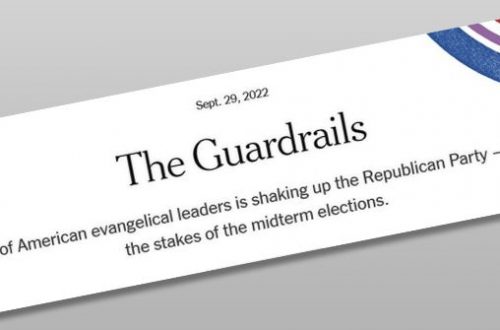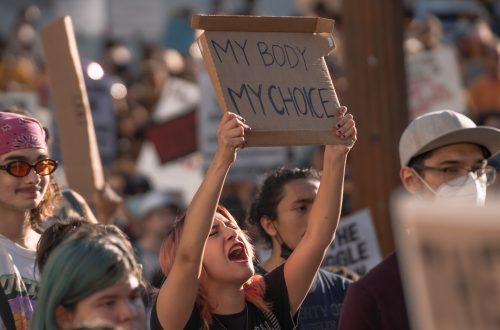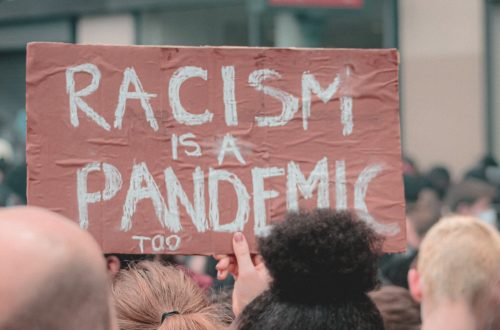 Just three years after Roe v. Wade passed, feminist writer Linda Bird Francke wrote about her abortion experience. Her story originally appeared under the pseudonym “Jane Doe” in The New York Times but was later published in a book of essays under her own name. Her experience and feelings afterward are still so very common today. In her own words:
Just three years after Roe v. Wade passed, feminist writer Linda Bird Francke wrote about her abortion experience. Her story originally appeared under the pseudonym “Jane Doe” in The New York Times but was later published in a book of essays under her own name. Her experience and feelings afterward are still so very common today. In her own words:
Though I would march myself into blisters for a woman’s right to exercise the option of motherhood, I discovered there in the waiting room that I was not the modern woman I thought I was.
When my name was called, my body felt so heavy the nurse had to help me into the examining room. I waited for my husband to burst through the door and yell “Stop,” but of course he didn’t. I concentrated on three black spots in the acoustic ceiling until they grew in size to the shape of saucers, while the doctor swabbed my insides with antiseptic.
“You’re going to feel a burning sensation now,” he said, injecting Novocain into the neck of the womb. The pain was swift and severe, and I twisted to get away from him. He was hurting my baby, I reasoned, and the black saucers quivered in the air. “Stop,” I cried, “Please stop.” He shook his head, busy with his equipment. “It’s too late to stop now,” he said. “It’ll just take a few more seconds.”
What good sports we women are. And how obedient. Physically the pain passed even before the hum of the machine signals that the vacuuming of my uterus was completed, my baby sucked up like ashes after a cocktail party. Ten minutes start to finish. And I was back on the arm of the nurse.
There were 12 beds in the recovery room. Each one had a gaily flowered draw sheet and soft green or blue thermal blanket. It was all very feminine. Lying on these beds for an hour or more were the shocked victims of their sex life, their full wombs now stripped clean, their futures less encumbered.
Finally, then, it was time for me to leave. . . My husband was slumped in the waiting room, clutching a single yellow rose wrapped in a wet paper towel and stuffed into a Baggie.
We didn’t talk all the way home. . .
My husband and I are back to planning our summer vacation now and his career switch.
It certainly does make more sense not to be having a baby right now — we say that to each other all the time. But I have this ghost now. A very little ghost that only appears when I’m seeing something beautiful, like the full moon on the ocean last weekend. And the baby waves at me. And I wave at the baby. “Of course, we have room,” I cry to the ghost. “Of course, we do.”
Abortion has a human toll—not only in lives lost but also in mothers who have to live in the aftermath of a decision they weren’t fully convinced of in the first place. In their most vulnerable moment, mothers are counseled by abortion supporters and boyfriends and others to suppress their conscience and to make a choice for death. And then they often have to face the subsequent darkness alone. Not long ago, I sat with a 60-year old woman who shared with me through hot tears her heart-breaking abortion story. Decades later she still grieves what she did—the pain is very close to the surface.
There is a Proverb that says, “Faithful are the wounds of a friend, But deceitful are the kisses of an enemy” (Prov. 27:6). It’s a reminder that the people who really love us are not the ones who flatter us with what we want to hear but the ones who care enough to tell us what we need to hear. If we love our neighbors, we owe it to them to speak the truth about abortion. They don’t need us to be bashful and politically correct. They need us to speak the truth in love—to expose the lies deceiving them to the brink of heartbreak and regret. We love them best by speaking the truth now.
—————
Source: Linda Bird Francke, “There Just Wasn’t Room in Our Lives Now for Another Baby,” in Contemporary Moral Issues: Diversity and Consensus, ed. Lawrence M. Hinman (Upper Saddle River, N.J.: Prentice Hall, 1996), 20-22.
Image Credit: LifeSiteNews.com



